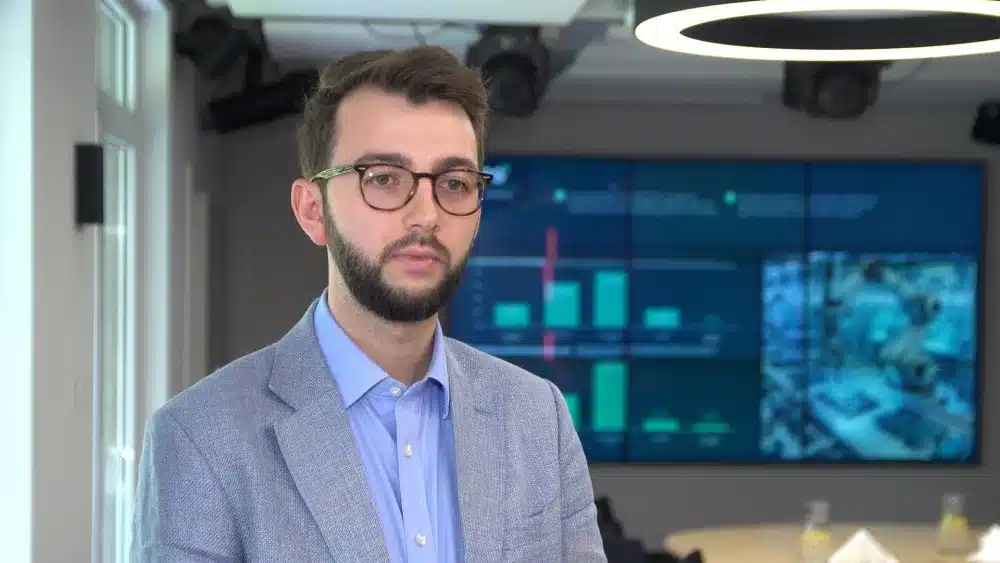Despite challenges related to investment outlays and the need to adjust regulations, Polish enterprises are increasingly engaging in the global trend of CO2 emission reduction – shows the second edition of the Decarbonization Index of Poland’s Economy. This is reflected in their business strategies, and experts indicate that this trend will only gain momentum. In decarbonization actions, however, companies are counting on state support.
The Decarbonization Index of Polish Economy for the first half of 2024 remains at 61 points (with 50 points indicating a neutral value; a higher score indicates positive business sentiment towards decarbonization and ESG-related actions). However, companies’ involvement in this area is growing – out of 111 surveyed enterprises, 40% declared that the importance of decarbonization in their business strategy has increased, while 20% said it has increased considerably.
– Decarbonization is becoming increasingly important for Polish enterprises. However, there is still a difference between the way large companies, who have the necessary resources and specialists in the field of environmental protection and climate change, approach it, and how medium and small companies approach it – says Michał Hetmański, Chair of the Instrat Foundation, to Newseria Business news agency.
The Decarbonization Index of Poland’s Economy – created by Employers PR, the Instrat Foundation and Qemetica – shows how national businesses approach green transformation issues. The tool, modelled on the PMI index, complements available climate data and also indicates current trends and challenges associated with decarbonization and sustainable development. It is based on anonymous surveys conducted on a representative group of national enterprises, with readings published every six months, broken down by sector.
– Decarbonization and environmental protection are at the heart of business interest, which is partly due to regulations, rising consumer awareness, but also business partners’ expectations, who increasingly require – even from small businesses operating in service sectors and not at all associated with mining or chemistry – information on their carbon footprint and what they are doing to reduce their negative impact on the climate – says Kamil Sobolewski, Chief Economist of Employers RP.
The new IDPG reading also shows that the profile of enterprises engaged in decarbonization so far remains unchanged – large and medium-sized companies are primarily most active in such actions.
– Large companies have a high agenda for measuring their carbon footprint and this is obvious because they are subject to responsibilities resulting from the CSRD directive, and falsifying their carbon footprint can result in penalties from other EU regulations. However, the problem is how this trend is reaching smaller and medium-sized companies – states Michał Hetmański.
In contrast to the previous IDPG reading, Polish enterprises currently report an increase in support from the state and public institutions in activities dedicated to decarbonization and environmental protection – 31% of companies assessed that this support has increased or significantly increased in the first half of the year. Experts highlight that this is especially important in the case of industrial companies operating in energy-intensive sectors. They are the ones leading in investments aimed at energy transformation and environmental protection.
– It is not only the industry, but also the construction sector, which uses cement and steel with a high carbon footprint. Here we are truly slowly reaching the limits of what the Polish cement, chemical, and steel economies can squeeze out. Most of the investments aimed at improving energy efficiency – with current production technologies based on fossil fuels – have been achieved. However, we lack a wave of investments in the production of green fertilizers, green steel, decarbonized cement. Here we are counting greatly on further state support – both financial and regulatory – so that companies throughout the Polish economy can say: we use Polish, green steel or green fertilizers. So far, these investments are slowly crawling, it could happen faster, as is the case in Western Europe – says the Chair of the Instrat Foundation.
– Actions related to decarbonization are a huge challenge, a huge effort, for energy-consuming enterprises. As for such companies to which Qemetica also belongs, energy and heat costs constitute a basic element of the final product cost which we offer to the customer. Therefore, our competitive position depends directly on the actions we undertake in the field of energy transition. The shift away from coal sources is the cornerstone of building our position – adds Piotr Szlagowski-Budacz, Strategy Director at Qemetica. – We have to go through this transition fairly quickly and incur huge investment outlays. However, all these investments in new biomass boilers, in waste thermal processing installations are very capital-intensive. Therefore, state and EU support is crucial here.
Out of the 111 companies surveyed for the second edition of the IDPG, nearly 2/3 declared that they have recently seen an increase in business environment pressure to implement solutions that accelerate decarbonization. However, the external pressure felt by companies does not always translate into actions taken by them. This results from the fact that domestic entrepreneurs continue to encounter numerous challenges related to the implementation of sustainable development actions.
– The barriers to decarbonization are definitely awareness, money and regulations that – if they don’t guide practical decarbonization, but move towards fulfilling formal requirements – are at odds with climate goals. It may be that some climate regulations reduce emissions, but only in Europe, only in some companies, at the cost of even greater increase in CO2 emissions in other regions of the world. That’s why, as Employers RP, we are active on the front of skilled implementation of these regulations, aimed at maintaining Europe’s competitiveness while retaining the pursuit of climate objectives – says Kamil Sobolewski.
